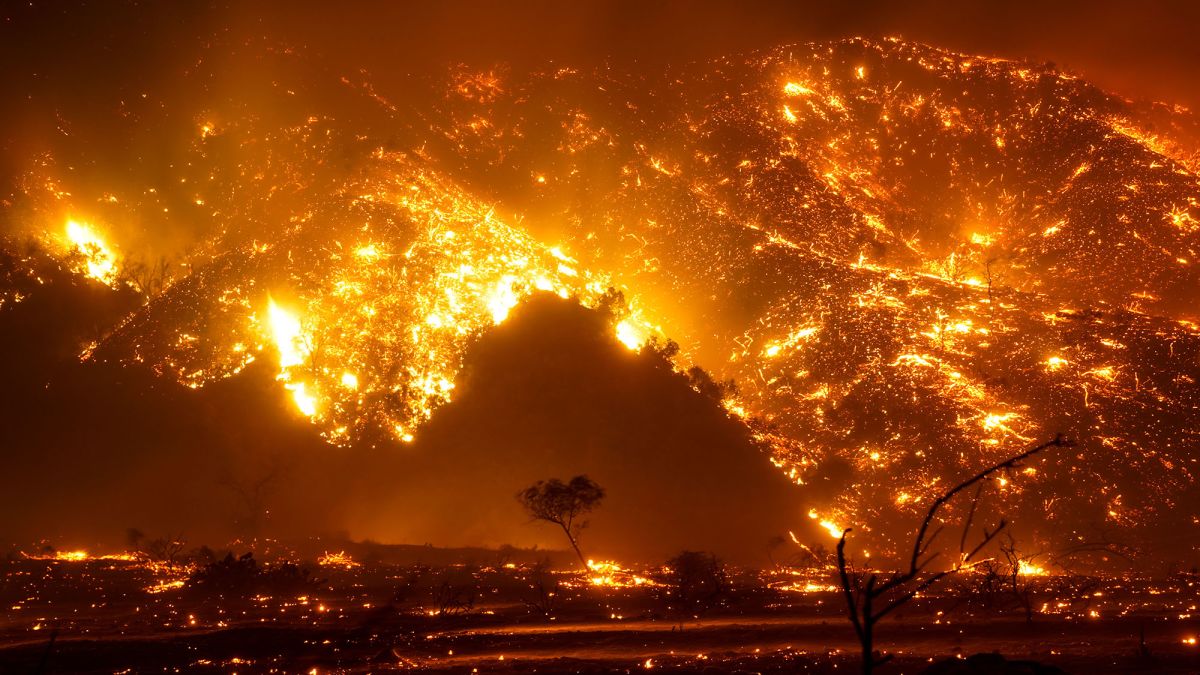This is how countries in the Americas have responded to climate change 0:59
(CNN) -
Global average temperatures in 2020 were tied for the hottest on record, topping what was also the hottest decade ever recorded on the planet, according to a new data analysis released Friday.
The past six years are now the hottest six on record, with 2020 on par with 2016 as the hottest year ever on record.
The new analysis comes from the European Union's Copernicus Climate Change Service, one of several data sets that track global temperatures and the impacts of climate change.
LOOK: The countries of America with the worst (and best) response to climate change
Last year's temperatures were 0.6 degrees Celsius (1.08 degrees Fahrenheit) warmer than the 1981-2010 average, and 1.25 degrees Celsius (2.25 degrees Fahrenheit) above the pre-industrial average.
Global warming has brought the planet closer and closer to the 1.5 degree Celsius warming threshold that scientists warned will increase the risk of more extreme wildfires, droughts, floods and food shortages that could affect hundreds of millions of people. .
advertising
However, in 2020 it became very clear that the world is already experiencing a worsening of disasters caused by climate change.
It started in January, when heat and drought fueled unprecedented bushfires in Australia.
When the flames were finally extinguished, the fires had charred an area larger than the state of Florida.
An analysis from last year found that climate change made fires at least 30% more likely.
Trees would lose their leaves sooner due to climate change 1:03
Then came hurricane season in the Atlantic, which saw a record 30 named storms, 12 of which made landfall in the U.S. Many of those storms carried the fingerprints of climate change, which scientists say is causing hurricanes are more destructive.
Extremely hot and dry conditions also fueled the worst wildfire season ever recorded in the western US, which engulfed approximately 10.3 million acres in flames.
And in the Arctic, some of the most extreme temperatures anywhere on Earth were observed in 2020, as the region continues to warm more than twice as fast as the rest of the planet.
In large parts of the Arctic, temperatures were recorded more than 3 degrees Celsius (5.4 degrees Fahrenheit) above average, and some places saw average temperatures more than 6 degrees Celsius (10.8 degrees Fahrenheit) above normal. For the year.
To illustrate how huge a difference of 6 degrees Celsius can be: during the last ice age, which occurred about 20,000 years ago and in which much of North America was covered in ice, the average temperature of the planet was about 6 degrees Celsius colder than it is today.
LOOK: Opposing the economy and the fight against climate change is a false dilemma, says expert
"2020 stands out for its exceptional heat in the Arctic and a record number of tropical storms in the North Atlantic," Carlo Buontempo, director of the Copernicus Climate Change Service, said in a press release.
"It is no wonder that the last decade has been the warmest on record and is yet another reminder of the urgency of ambitious emission reductions to avoid adverse climate impacts in the future."
La Niña fails to cool the planet in hot 2020
What makes the heat in 2020 even more surprising is the fact that the year featured La Niña, a natural climate cycle characterized by colder-than-normal temperatures in the Pacific Ocean.
The vast expanse of colder ocean water and the resulting impacts on global climate act as a natural air conditioner for the planet, and La Niña years tend to make the planet colder than years without La Niña or the phase opposite of the cycle, called El Niño.
El Niño, which features warmer than average ocean temperatures in the Pacific, adds large amounts of excess heat released into the atmosphere and tends to make those years warmer.
LOOK: 2021 astronomical calendar: when to see full moons, planets, eclipses and meteor showers
Not surprisingly, 2016, which had previously been the hottest year on record, featured a strong El Niño during the first half of the year.
However, it is notable that even with the cooling effects of La Niña present, 2020 would present the same amount of global heat.
This provides yet another yardstick to measure the impact that man-made global warming is having on the planet's climate.
2020









